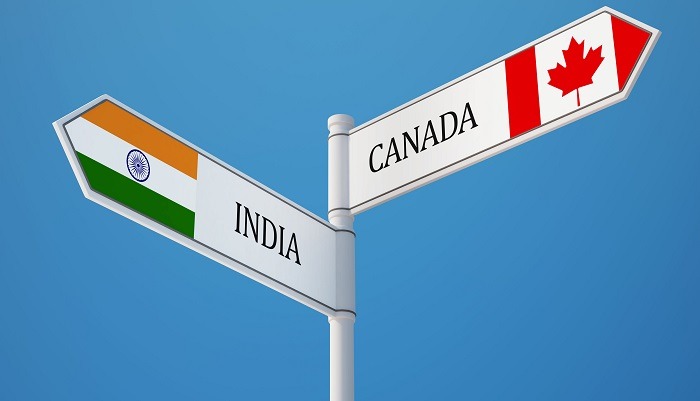In a rapidly escalating diplomatic feud, India has issued a stern advisory to its citizens residing in Canada, particularly students, urging them to exercise “utmost caution.” This move comes as relations between the two nations deteriorate, following the expulsion of diplomats from both sides, fueled by a contentious dispute over the murder of a Sikh separatist leader, Hardeep Singh Nijjar, in British Columbia. As the tension mounts, India’s foreign ministry has cited growing anti-India activities, politically condoned hate crimes, and criminal violence in Canada as reasons for their cautionary message. In contrast, Canada’s public safety minister, Dominic LeBlanc, asserted that Canada remains a safe country. This growing friction raises concerns over the safety and well-being of Indian nationals in Canada, especially students who constitute a significant portion of the international student population.
Canada Investigates Indian Government’s Role in Murder
The strained relations between India and Canada took a worrisome turn when Canadian Prime Minister Justin Trudeau announced on Monday that his country was investigating “credible allegations” suggesting the potential involvement of Indian government agents in the murder of Hardeep Singh Nijjar. The murder, which occurred in June in British Columbia, has been a focal point of contention, with India categorically rejecting Canada’s suspicions. The lack of concrete evidence or specific incident details has only added to the tensions.
“In view of growing anti-India activities and politically condoned hate crimes and criminal violence in Canada, all Indian nationals there, and those contemplating travel, are urged to exercise utmost caution,” stated India’s foreign ministry. The advisory further highlighted the deteriorating security environment and urged Indian students to remain vigilant.
Safety Concerns for Indian Students in Canada
India’s advisory assumes greater significance considering the significant influx of Indian students in Canada over recent years. Since 2018, India has held the position of being the largest source nation for international students in Canada. Last year alone, this figure surged by 47 percent, totaling nearly 320,000 students, constituting approximately 40 percent of the overall overseas student population in Canada, according to the Canadian Bureau of International Education. This advisory, therefore, serves as a crucial reminder of the potential risks faced by the Indian student community in Canada.
On the heels of India’s travel advisory, BookMyShow, a prominent entertainment company, announced the cancellation of an India tour by Canadian singer Shubhneet Singh, highlighting the far-reaching consequences of the diplomatic tensions.
Global Reactions: US Expresses Concern, UK Maintains Trade Talks
The escalating dispute between India and Canada has not gone unnoticed on the global stage. The United States has expressed “deep concern” over Canada’s allegations, with U.S. Ambassador to India Eric Garcetti insisting that those responsible for Nijjar’s murder must be held accountable. However, reports of Canadian Prime Minister Trudeau’s attempt to garner international support against India at the recent Group of 20 summit were met with a firm rejection by the United States and other nations. White House national security adviser John Kirby clarified that there was no rebuff and that coordination and consultation with Canada on the matter would continue.
Meanwhile, Britain, a key ally in the Five Eyes intelligence sharing alliance, has chosen not to publicly criticize India. Foreign Secretary James Cleverly’s statement about the affair notably refrained from mentioning India by name, signaling the country’s commitment to maintaining trade talks as planned.
As diplomatic tensions continue to escalate between India and Canada, the safety and well-being of Indian citizens in Canada, especially students, remain a matter of paramount concern. The international community closely watches this developing situation, hoping for a peaceful resolution to the growing dispute.















